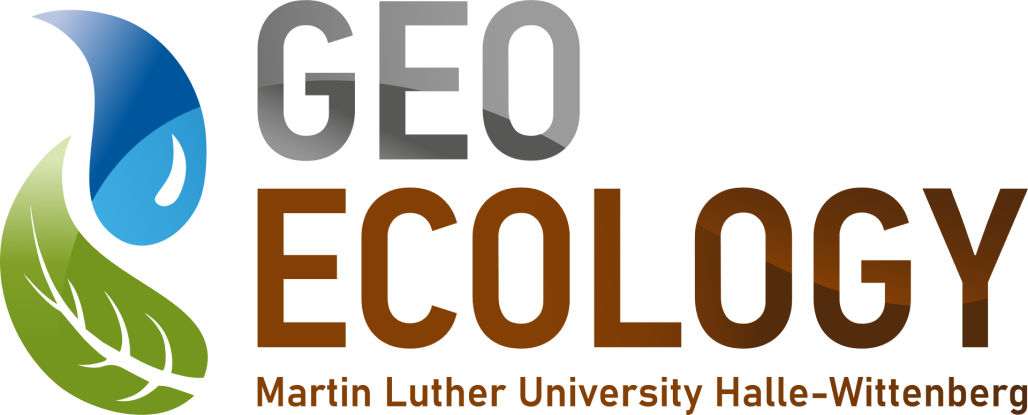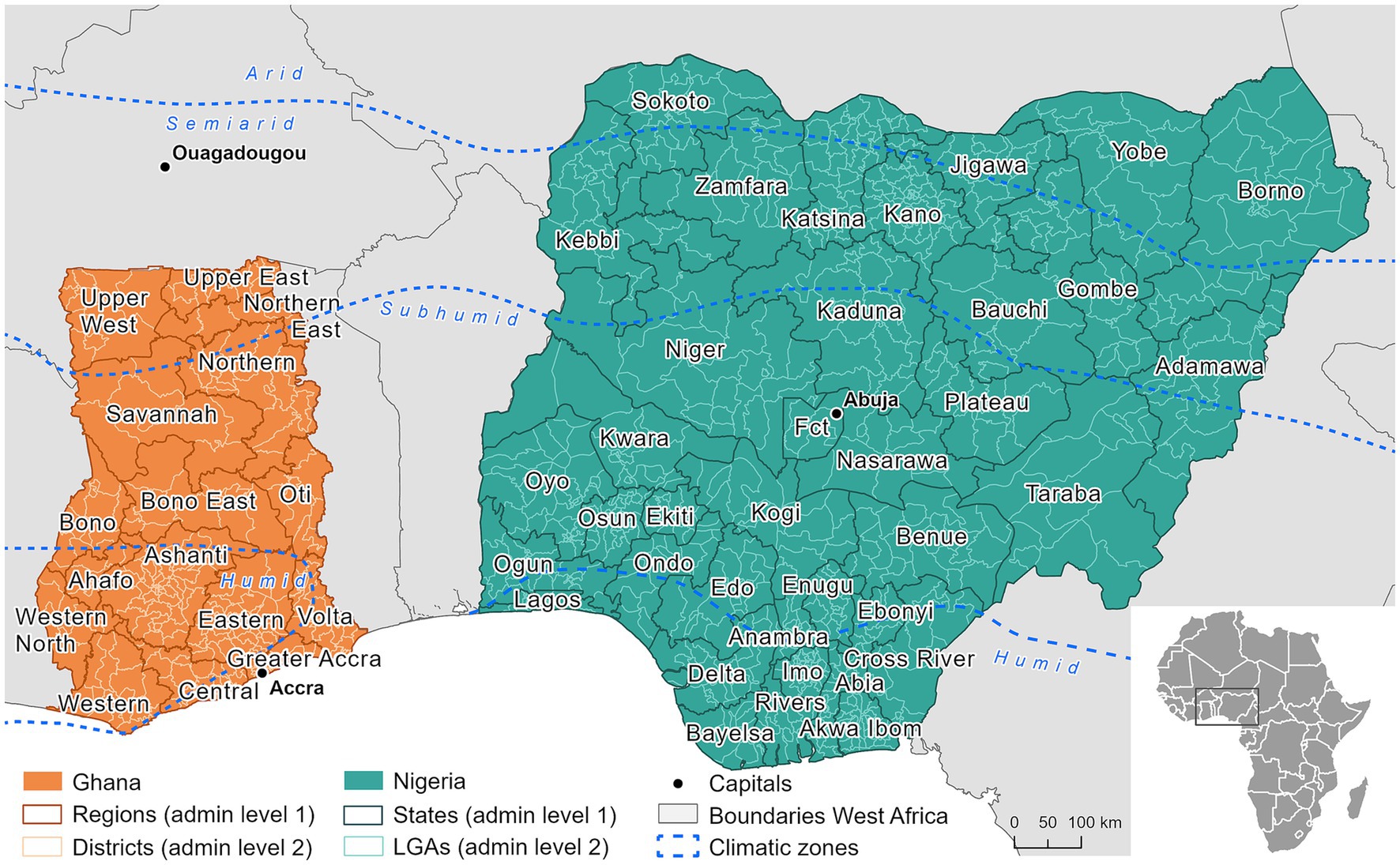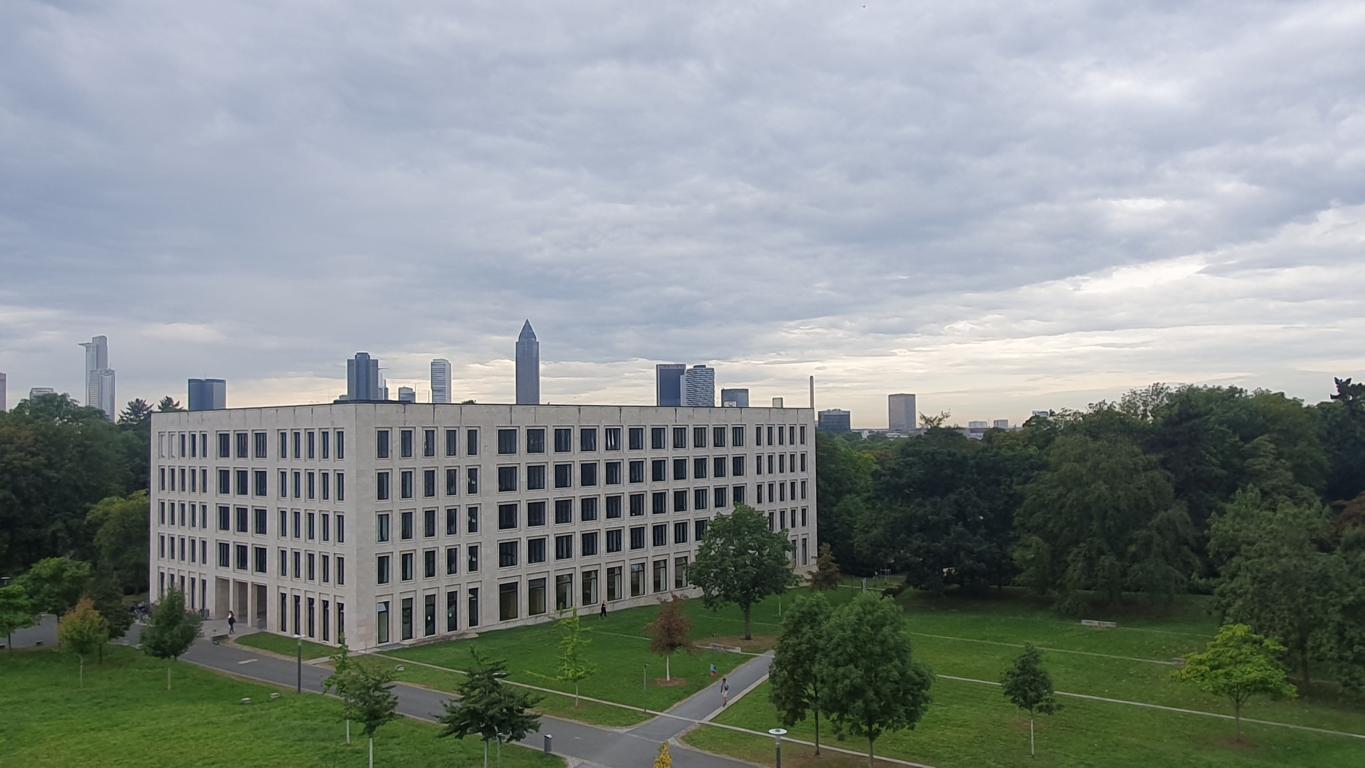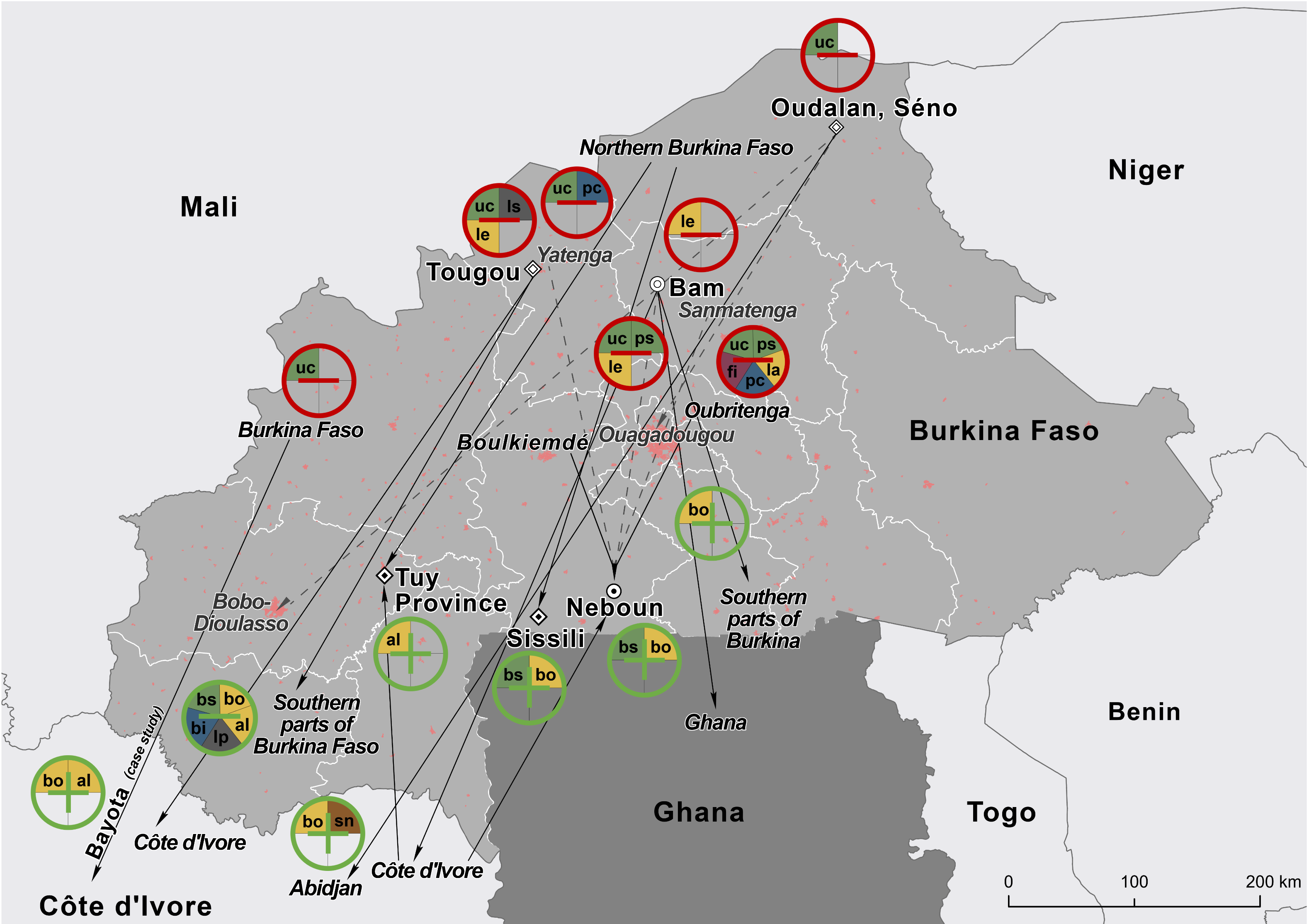The MIGRAWARE project aims to identify and analyse historical, current and future migration movements in West Africa. This analysis will be carried out against the background of the various drivers of migration. These include economic, social, political and demographic factors, but also environmental factors such as climate change. This is seen as an important aspect in migration decisions. Changing rainfall patterns lead to growing challenges and in particular to increasing food and fodder insecurity.
Sub-project leader:
Team:
Project partners:
- Fachgebiet Nachhaltige Landschaftsentwicklung, Martin Luther University Halle-Wittenberg, Halle (Saale)
- CoKnow Cosunlting Jesewitz
- Julius Maximilian University Würzburg, Würzburg
- Deutsches Zentrum für Luft- und Raumfahrt, Oberpfaffenhofen
- PiSolution GmbH, Markkleeberg
- University Nazi Boni, (Bobo-Dioulasso, Burkina Faso)
- Cape Coast University, (Cape Coast, Ghana)
- CSIR Savanna Agricultural Research Institute (SARI), (Tamale, Ghana)
- Hen Mpoano, (Takoradi, Ghana)
- Federal University of Technology Minna, (Minna, Nigeria)
- Cooperation with the coordination of the WASCAL Doctoral Research
- Programme on Climate Change and Human Habitat, (Minna, Nigeria)
Background and objectives:
The aim of MIGRAWARE is to provide a scientific and technical framework for assessing the processes, drivers and determinants of rural-urban and transboundary migration in West Africa. MIGRAWARE will propose governance tools suitable for alleviating migration needs, improving local livelihoods and strengthening human-environment interactions. The project aims to identify the typical migration pathways and histories that encompass movement from the structurally weak hinterland to urban agglomerations and other locations, so that governance tools can be tailored for the local, national and intergovernmental (transboundary) levels. An overarching goal is to better protect people and the environment against the impacts of climate change and global change.
Methodological approach:
A mix of methods is used for the study. Spatial data, interviews and social media data are analysed to identify and capture migration patterns. On this basis, models are developed that reflect the spatio-temporal trends of migration flows.
Expected results:
Based on these and other findings, governance measures and tools will be developed to reduce migration pressures and improve local livelihoods. In addition, all results and models will be incorporated into a freely available software for analysing migration trends and drivers, which can also be used for other regions.
The results will flow into the West African Science Service Centre on Climate Change and Adapted Land Use (WASCAL). The centre is a joint initiative of the BMBF with partners from eleven West African countries in the field of climate change and sustainable land management.




